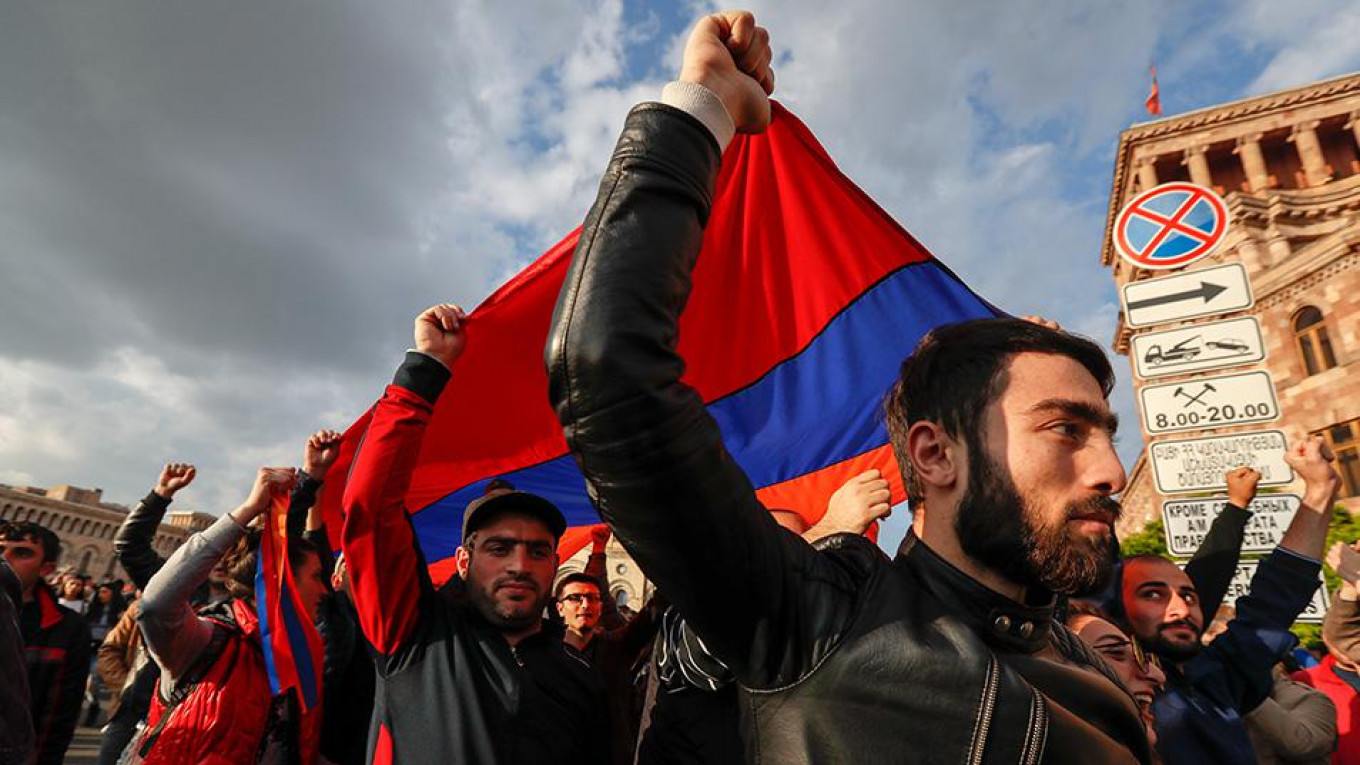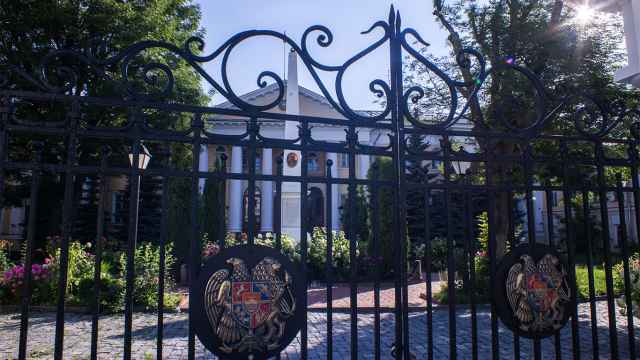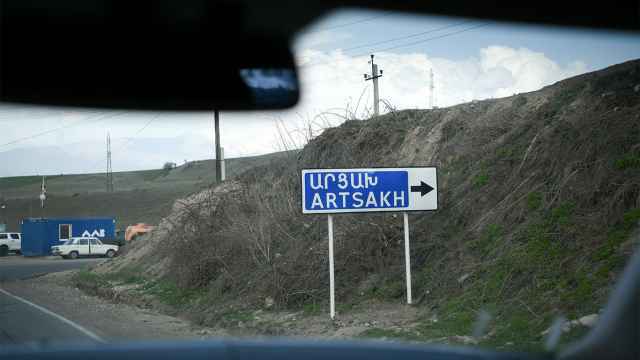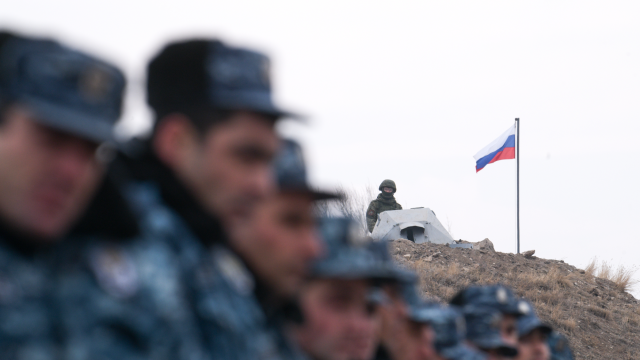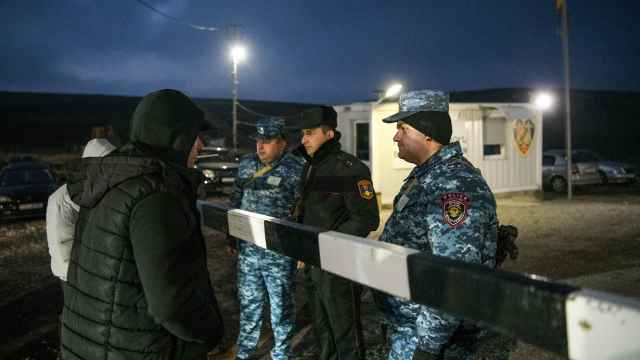On Monday, Armenia’s Prime Minister Serzh Sargsyan resigned amid mass peaceful protests. “I am addressing you for the last time as the country’s leader,” Sargsyan wrote. “The movement in the streets is against my tenure. I comply with your demand.”
Armenia’s unpopular leader was pushed out of office by an inclusive and egalitarian movement uniting Armenians of all classes and ages. In power since 2008, Sargsyan became prime minister earlier this month after his second presidential term expired. As the position has no term limits, it was an attempt to extend his rule indefinitely. But the new tenure lasted only a week.
Protest leader Nikol Pashinyan, a National Assembly MP with the opposition Yelk bloc, seemed to be conscious of Russia’s long-standing fear of color revolutions. A longtime critic of Armenia’s alliance with Russia, this time he narrowed his demands to domestic issues and called the protest “the first mass movement in the post-Soviet space in the last 20 years that is not associated with any foreign power.”
So far, Pashinyan’s geopolitics-blind protest platform has met with praise in Moscow. On Monday, Putin’s spokesperson Dmitry Peskov called the political crisis "exclusively an internal affair" of Armenia and ruled out any Russian interference. Later that day, after Sargsyan’s resignation, Russian Foreign Ministry spokeswoman Maria Zakharova called Armenians “a great people” and wrote, “Armenia, Russia is always with you!”
On Monday, after Sargsyan’s resignation, Deputy PM Karen Karapetyan assumed office.
This Wednesday, he is set to meet with Pashinyan to negotiate a further transition of power. Speaking in front of the crowd chanting “Victory! Victory!” Pashinyan reiterated his demand for an appointment of “a people’s candidate” to head an interim government that will be overseeing snap elections. It’s safe to assume that the people’s candidate right now is Pashinyan.
For the Kremlin, a better partner would be Karapetyan, a 53-year-old Gazprom veteran, known for his affinity for tailored waistcoats. Before returning to Armenian politics in 2016, Karapetyan spent five years in Moscow, where he served as vice president of Gazprombank and then CEO for a Gazprom subsidiary. He has business interests in Russia, partnering with Samvel Karapetyan, an Armenia-born Russian billionaire (the two are not related). On Monday, Karapetyan had a phone conversation with Russian Prime Minister Dmitry Medvedev.
The momentum, however, is on Pashinyan’s side. Having spent the last ten days running around Armenia’s capital in a camouflage T-shirt and an Adidas baseball hat with a black eye and his right hand bandaged from barbed wire, he coordinated the movement that forced out the country’s long-despised ruler. Right now, he’s a national hero.
If things go Pashinyan’s way, Russia will have to deal with a young, Moscow-skeptic democrat. The 42-year-old lawmaker for years championed an Armenia-centric approach, arguing that there’s no place for pro-Russian or pro-Western political forces in the country.
As an opposition MP, Pashinyan repeatedly criticized Armenia’s alliance with Russia. In 2016, he endorsed mass demonstrations and gave a speech in front of protesters, accusing Russia of secretly pushing the so-called “Lavrov plan” — a Karabakh conflict resolution envisaging a handout of Armenian-controlled lands to Azerbaijan.
Pashinyan is also a vocal critic of Armenia’s membership to the Russian-led Eurasian Economic Union (EEU). In 2013, Armenia, just like Ukraine, was expected to sign an association agreement with the European Union that would create a free trade zone. But two months before the Eastern Partnership summit in Vilnius, Sargsyan met with Vladimir Putin in Moscow and announced that Armenia would be joining the Eurasian Union instead.
Pashinyan was among that decision’s harshest critics, and he later called the country’s membership to the EEU a threat to Armenia’s national security and sovereignty. (In 2017, Yerevan was able to make up for the U-turn, signing an association agreement with the EU. It excludes, however, the trade partnership of the original document. Russia officially expressed its support for the agreement).
But however critical of Russia’s role, it will almost be impossible for any Armenian leader to seek a completely independent foreign policy as long as the Nagorno-Karabakh conflict isn’t resolved.
Russia and Armenia are allied through the Collective Security Treaty Organization (CSTO), and Armenia’s air defense system is integrated with Russia’s. The country also hosts a large Russian military base. Recently, Yerevan launched a long-term military modernization program that relies on cooperation with Russia. “The new Armenian strategic program cements the country’s loyalty to Russia,” wrote regional security analyst Eduard Abrahamyan in a Jamestown Foundation report.
Rather than seeking a total break from Moscow, a new leader in Yerevan may instead try to renegotiate terms of the alliance. Russia’s arms sales to Azerbaijan, Armenia’s main foreign adversary, is the main concern for Armenian officials, regardless of their political affiliation.
Since 2011, Moscow sold Baku weapons worth more than $5 billion. The Azerbaijani military used some of them in April 2016, when a tragic flare-up of fighting in Karabakh resulted in the deaths of 94 Armenian soldiers, including volunteers and reservists. In an interview last year, Sargsyan called Russia’s arms sales to Baku “the most painful side of Russian-Armenian relations.”
As of today, Pashinyan has proven himself to be a tough negotiator on behalf of protesters, convincing Armenia’s longtime authoritarian ruler that his time is over. If he becomes prime minister, it will have to be seen whether he can negotiate as energetically on behalf Armenia.
Grigor Atanesian is a political commentator and journalist covering Armenia. He is a Fulbright scholar at The Missouri School of Journalism and a former Esquire Russia editor. The views and opinions expressed in opinion pieces do not necessarily reflect the position of The Moscow Times.
A Message from The Moscow Times:
Dear readers,
We are facing unprecedented challenges. Russia's Prosecutor General's Office has designated The Moscow Times as an "undesirable" organization, criminalizing our work and putting our staff at risk of prosecution. This follows our earlier unjust labeling as a "foreign agent."
These actions are direct attempts to silence independent journalism in Russia. The authorities claim our work "discredits the decisions of the Russian leadership." We see things differently: we strive to provide accurate, unbiased reporting on Russia.
We, the journalists of The Moscow Times, refuse to be silenced. But to continue our work, we need your help.
Your support, no matter how small, makes a world of difference. If you can, please support us monthly starting from just $2. It's quick to set up, and every contribution makes a significant impact.
By supporting The Moscow Times, you're defending open, independent journalism in the face of repression. Thank you for standing with us.
Remind me later.



